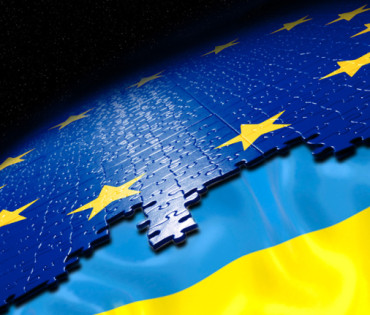Deputy Director of the IWP Kateryna Zarembo for EuobserverDuring the Euromaidan’s events the EU’s normative power declared itself fully — Ukrainians were ready not only to massively defend a new European quality of internal development, they gave their lives for it. In time of its own existential crisis, the EU has received a chance to look at itself from the outside, to feel its attractiveness and historical necessity.\
However, in three months of protests an enormous re-estimation of the EU, as an international player in Ukraine, took place. The EU suffered serious reputational losses because they had not answered the main expectations raised by the Euromaidan’s participants and supporters in Ukraine — the EU had not imposed targeted sanctions against members of the Ukrainian leadership before blood was spilled. In general, the European Union’s contribution in resolving the Ukrainian crisis can be defined as «too late and too little».
This is a serious threat for the EU policy in the neighbourhood. Losing its credibility in the region could lead to a serious – if not fatal – damage to its ‘soft power’, the only kind of transformative power the EU actually possesses. EU policy makers should take into account that for many Ukrainians the concept of the EU and the concept of democracy are identical, so the disappointment in the EU can strike pro-democracy forces in the country.
Preventing this from happening is easy.
Firstly, the EU should sign the Association Agreement with Ukraine. In full, not in parts.
Indeed, it is not clear why the document should be divided in two parts now. In the first place, the transformative capacity of the Agreement lies in its DCFTA part and not in the political part. Moreover, if the EU was ready to sign it with the authorities whose genuine ambition to implement it was very doubtful, it is unclear why it cannot do the same with the government which is significantly more likely to take its implementation seriously.
The EU owes this to Ukraine. Not to the government – to the people. Even in the third month of protests, when more than a hundred people died and hundreds were injured, the Ukrainian government’s reluctance to sign the Association Agreement with the EU remained one of the key motivations for people to stay on the Maidan. In addition, after the failure to sign the Agreement in Vilnius, Ukrainians became more interested in European integration: the unprecendented figure of 60% of respondents consider the focus on the EU to be the key condition for improving the situation in the country.
The Ukrainian people voiced their will eloquently. So, signing the Association Agreement now seems a logical response from the EU – keeping its word about the AA «being on the table» for Ukraine.
But the effect of the membership perspective will be even stronger, especially if you consider that post-revolutionary politics came to power using pro-European slogans. The policy of conditionality has proved its effectiveness in Central Europe, and therefore it has a great chance to be effective in the Ukrainian case.
The membership perspective may give an even bigger chance to establish trust. Today, 50% of Ukrainians support Ukraine’s accession to the EU, while 13% are undecided.
Let’s face it: there would be no reputational costs for the EU. The surveys conducted in six largest EU countries show that the majority of the population there are in favour of Ukraine’s accession. Besides, accession is a long-term process and the EU would have plenty of time to prepare against ‘enlargement fatigue’. Meanwhile, in Ukraine it would bear an unprecedented symbolic value, an incentive for qualitative change not only for the state structures but also for ordinary citizens.
Last but not least, the membership perspective for Ukraine would put an end to Russia’s attempts to force on European countries an agenda and competition spirit of the Cold War era.
If the EU denies the historic chance of the ‘return to Europe’ to Ukraine, it will only admit its own power limits and put an end to its own ambition of global influence. If the EU supports Ukraine now, it will receive an unprecedented ‘success story’, a luminous justification of its raison d’être and unique European mission.




Comments theme
Comments themeComments themeComments themeComments themeComments themeComments themeComments themeComments themeComments themeComments themeComments themeComments themeComments themeComments themeComments themeComments themeComments themeComments themeComments themeComments.